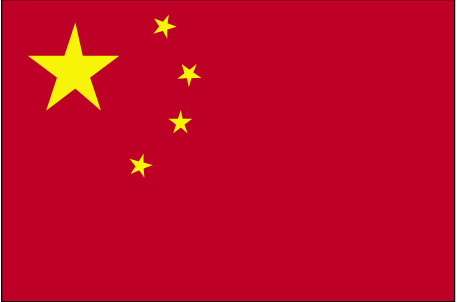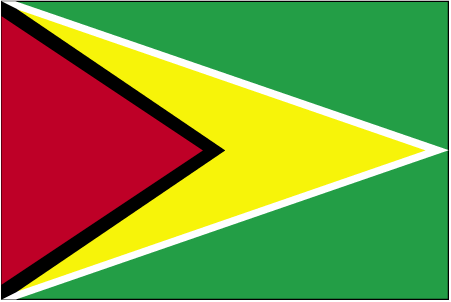FORUM: The Security Council
THE QUESTION OF: The escalating humanitarian crisis in Yemen
SUBMITTED BY:
CO-SUBMITTED BY:
THE SECURITY COUNCIL,
Alarmed by over 80% of the entire population in need of humanitarian assistance, totalling to over 24 million people,
Recognising that Yemen ranking 177th out of 189th on the Human Development Index (HDI) in 2015 outlines that its poor economy has contributed to the increase of conflicts we see today,
Aware of the pressing nature of the dire humanitarian crisis in Yemen as a result of ongoing conflict,
Further acknowledging its efforts, its previous resolutions and its agencies, particularly the United Nations Office for the Coordination of Humanitarian Affairs (OCHA), in facilitating aid delivery and coordinating international assistance,
Alarmed by the fact that UNSC speakers have deemed previous attempts ‘the worst response to a humanitarian crisis ever,
1. Requests for the creation of a Joint Humanitarian Response Initiative of Yemen (JHRIY) between relevant bodies and NGOs, including the United Nations Office for the Coordination of Humanitarian Affairs (OCHA), and encouraging all member nations to continue or start to provide such detailed humanitarian aid through the JHRIY:
a. strengthening existing and establishing new humanitarian corridors, following International Humanitarian Law (IHL) and the request of the Secretary-General, and bringing the following proposals and objectives:
i. ensure safe and unimpeded access to humanitarian aid, facilitate displacement, and reduce bureaucratic and conflict-related delays
ii. investigation into agreed multilateral humanitarian corridors with all parties to the situation
iii. establishing UN protection on said humanitarian corridors in key regions, where necessary, to ensure that aid convoys are not obstructed, attacked, or misappropriated
b. ensure all relevant stakeholders refrain from actions impeding the passage of humanitarian assistance, where in the case of a breach of such will result in the referral and or sanctions from relevant UN bodies,
c. urging all humanitarian efforts to coordinate efforts with the JHRIY to maximise effectiveness and efficiency through the following:
i. inspection and approval of humanitarian aid before entering Yemeni territory
ii. establishment of centralised hubs for aid distribution in designated strategically important locations with permission from the relevant stakeholders
iii. creation of real-time tracking and data-sharing platforms for humanitarian aid shipments and convoys entering and leaving Yemeni territory
d. sending consented inspectors to investigate and ensure this aid reaches the citizens of Yemen, in the absence of such consent, alternative measures should be considered
e. requests the JHRIY to work in close association with the Secretary-General to publish a detailed report on developments every 6 months
f. initiating public awareness campaigns to increase global and regional support of humanitarian efforts in Yemen, focusing on education and transparency of JHRIY actions; Main submitter Pakistan
2. Recognising the urgent humanitarian crisis, the United Nations Security Council (UNSC) calls for a careful approach to foreign mercenaries and military contractors operating in Yemen while working in conjunction with all relevant UN bodies, ensuring international compliance through diplomatic engagement and reporting mechanisms and potentially imposing secondary sanctions on non-cooperative Member States, in order to:
a. identify and designate foreign mercenary groups through an independent investigative panel appointed by the Secretary-General
b. grant amnesty and economic incentives for mercenary Exit, including but not limited to safe passage and repatriation programs as well as conditional pardon agreements
c. recommending the legal ramifications of the private military companies to be determined in whole by the Member States from which they are headquartered to ensure the application of Member States' laws on these companies
d. beginning processes of renegotiating PMC contracts with them and the bodies that hire them to ensure the ethicacy and legality of their actions
e. ensuring that the legality of actions of PMCs are protected, such as in on-the-ground support and advisory roles
f. see that non-cooperative Member States have proper international accountability ascribed to them through a suggestion of a sanctions committee under the UNSC
g. freezing the assets of individuals that provide financial or logistical support to mercenary factions
h. prohibit military-grade equipment, weapons, and dual-use technology transfers to actors proven to have engaged in mercenary recruitment
i. establish the Yemen Conflict Accountability Fund (YCAF) to channel sanctioned assets into post-conflict reconstruction programs;
3. Authorises the establishment of National Yemen Peace Councils (NYPC) to mediate local disputes and foster long-lasting stability, which will de-escalate the humanitarian crises in Yemen due to the divisions between the different groups by:
a. establishing local mediation councils, named the Yemen Administrative Mediation Councils (YAMC), which include respected tribal elders, community leaders, government representatives and international stakeholders and moderators from the United Nations which shall act as impartial dispute resolution bodies, addressing issues of land ownership, resource distribution and inter-tribal conflicts and dealing with emerging challenges, working in coordination with international mediators and NGOs
b. provide incentives for cooperation among tribes by creating community development funds, depending on their commitment to a peace agreement
c. deploying third-party peace monitors, including UN-appointed observers and diplomatic envoys
d. developing enhanced mechanisms for communication and overview, including:
i. setting up formal recognition mechanisms in collaboration with Yemen's judiciary and transitional authorities for mediated agreements;
ii. limited enforcement capabilities overseen by legal and human rights institutions;
iii. initiatives for building the capacity of tribal mediators, such as training on legal frameworks, negotiation tactics and reconciliation practices.
e. ensuring legal recognition and Integration into broader peace efforts through limited enforcement capabilities overseen by legal and human rights institutions; Main submitter UK, co-submitter USA
4. Creates a new United Nations Initiative for the Treatment of Yemen (UNITY) to be overseen by the UNSC led by a governing Yemeni-led committee working in close cooperation with existing bodies, global experts and NGOs, to be comprised of relevant envoys as well as expert United Nations representatives to act as advisors should they be requested, with its primary mandate being to address root causes and prevent future crisis:
a. immediately inviting all relevant envoys of parties and NGOs to resume UN-led peace talks to be overseen by non-partisan UNITY representatives and a representative of the Special Envoy, which would be subject to external audits with the aims of these conferences being hosted in Muscat, Oman, the first of which to take place within two weeks of this resolution passing including but not being limited to:
i. working towards a sustainable ceasefire
ii. establishing a transitional governance framework
iii. encouraging a deal on the unilateral release of all hostages
iv. bringing about a de-escalation of conflict
v. further bringing the reopening and full return to the use of seaports to allow for safe trade and commerce
vi. reaching a long-term deal for the future of stable Yemeni governance
b. establishing a UNITY office on the ground in Yemen staffed by a small team of professionals tasked with monitoring and ensuring peace to the aforementioned ceasefire in order to prevent further violence as negotiations take place with specific logistics and coordination of such efforts to be overseen by the Department of Peacekeeping Operations (DPO) to also expand the efforts of the office in carrying out the following:
i. unconditional distribution of humanitarian aid to civilians in the surrounding area in coordination with other UN efforts
ii. becoming the headquarters of the NYPC
d. deciding if a peacekeeping mission is deemed necessary to develop such an operation in line with the aforementioned report and with an accompanying resolution
e. enforcing, in the event of a return to conflict and a breach of the previously mentioned ceasefire, strict and thoroughly policed arms embargoes on Yemen in order to limit capacity for further conflict
f. overseeing the full and proper implementation of all clauses and measures outlined in this resolution; Main submitter Greece














